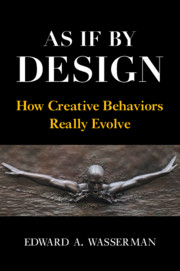Setting the Stage
from Section 1 - Introduction
Published online by Cambridge University Press: 01 July 2021
Summary
All history is retrospective. We’re always looking at the past through the lens of later developments. How else could we see it? We are ourselves, as subjects, among those later developments. It’s natural for us to take events that were to a significant extent the product of guesswork, accident, short-term opportunism, and good luck, and of demographic and technological changes whose consequences no one could have foreseen, and shape them into a heroic narrative about artistic breakthrough and social progress. But a legend is just one of the forms that history takes.
- Type
- Chapter
- Information
- As If By DesignHow Creative Behaviors Really Evolve, pp. 5 - 12Publisher: Cambridge University PressPrint publication year: 2021



